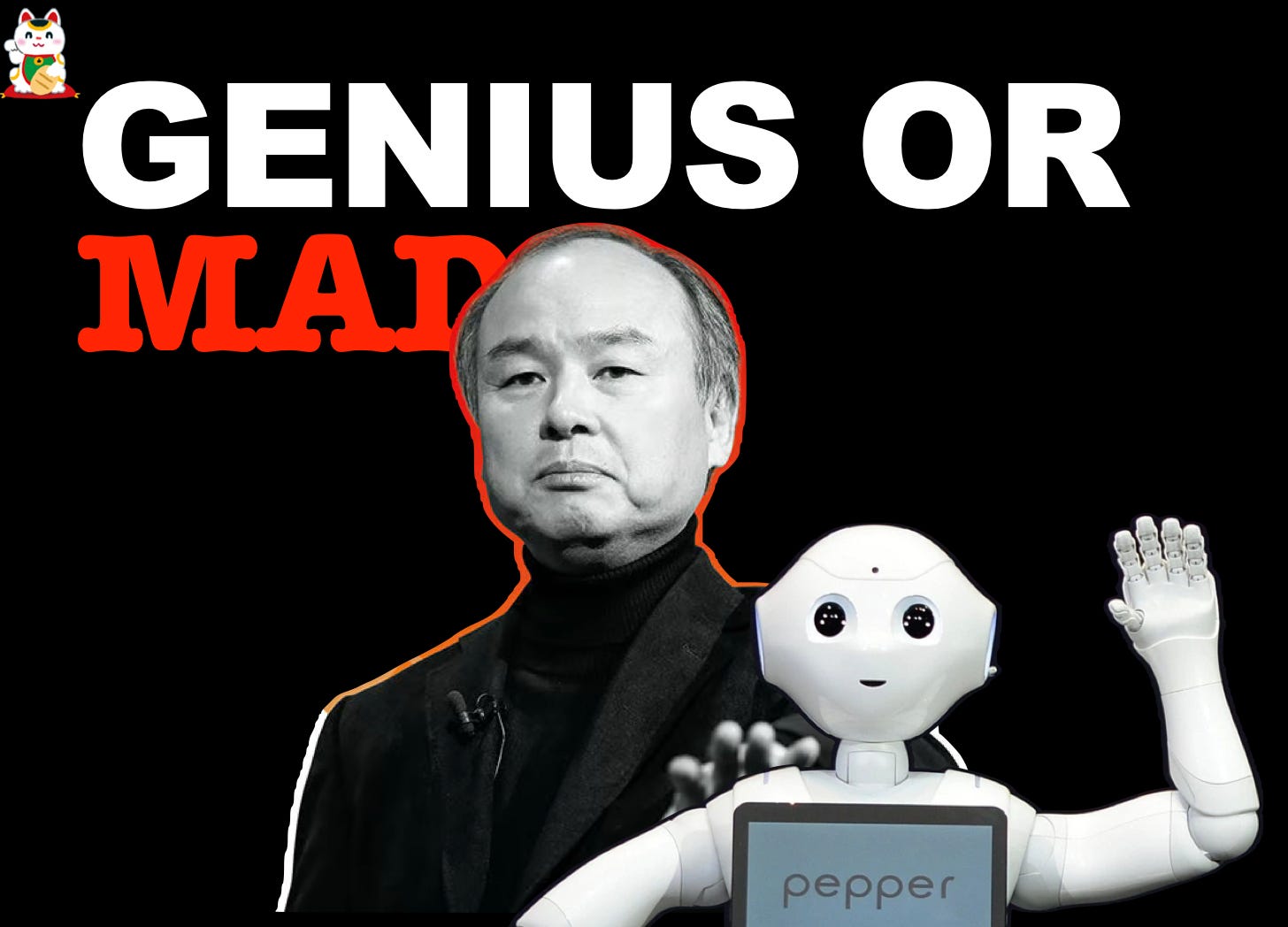Masayoshi Son: Japan's Most Controversial Businessman
Does high risk result in high rewards? The story of Masa sure will tell you
No figure in Japan’s modern business landscape evoke as much admiration or controversy as Masayoshi Son, or Masa as he is fondly called. The founder and CEO of SoftBank Group, Masa is renowned for his audacious investments, dramatic leadership style, and relentless drive that catapulted him to the top of the global tech industry.
Just to prove his insane relevance to this day, Donald Trump chose to meet with Masa before even Japan’s prime minister(!) where Masa unveiled a jaw-dropping $100 (or $200?) billion investment plan for the US, promising to create 100,000 jobs.
This story draws much of its inspiration from 志高く 孫正義正伝 決定版 (Aim High: The True Story of Masayoshi Son - Definitive Edition), written by Atsuo Inoue. This biography offers an in-depth look at Masa’ journey, but I’ve also relied on numerous other sources, including financial reports, interviews, and investigative articles, to give you a comprehensive view of both his rise and the controversies surrounding him.
From bringing Alibaba to the world stage to introducing the iPhone to Japan, Masa has made decisions that transformed markets. Yet, his path to success has been far from smooth. Alongside his triumphs, his career has been marked by staggering failures and scandals, leaving many questioning the cost of his ambition.
Masa’s journey from an ethnic Korean outsider to one of Japan’s richest and most influential men is a story rarely seen in Japan. But it’s also a tale of controversy, driven by a leadership style that’s as disruptive as it is visionary, and a string of scandals that have tarnished his legacy.
Chapter I: The Rebellious Korean
Masayoshi Son was born in 1957 in Tosu, Saga Prefecture, to ethnic Korean parents. His family, part of the Zainichi Korean minority, faced intense social discrimination. Zainichi Koreans have historically occupied a difficult place in Japanese society, often treated as outsiders regardless of how many generations they’ve lived in Japan. This deeply ingrained prejudice shaped Masa’s early years and played a significant role in shaping his bold, rebellious, and ambitious personality.
Determined to rise above these limitations, Masa displayed entrepreneurial flair from a young age. At 18, his ambition led him to the U.S., where he was accepted to UC Berkeley. There, Masa became captivated by Silicon Valley’s tech revolution, laying the foundation for his future ambitions.
It was quite clear that he was something special, at 19, the microchip-obsessed student designed a multilingual translator gadget with the help of some of his professors. He made close to US$1 million from selling this patent to Sharp
Chapter II: The Birth of Softbank
After graduating from Berkeley in the early 1980s, Masa returned to Japan and, spotting a rising tech wave, founded SoftBank in 1981 as a software distributor. Initially focused on bringing foreign software to the Japanese market, he quickly expanded SoftBank's portfolio, distributing top global software products to meet Japan's growing demand for tech solutions. However, Masa’s ambitions far surpassed simple distribution.
He began acquiring stakes in a diverse array of companies, from early internet businesses to telecom providers. In the 1990s, he made one of his first significant moves by securing a 40% stake in Yahoo!, which helped SoftBank establish Yahoo Japan, a leading internet portal in Japan.
In 1994, Masa decided to make Softbank public, and the timing was perfect. Softbank’s managed to ride the IT-hype wave in the 90s and the company kept climbing to new heights.
Writing stories like this takes time, effort, and a lot of research. If you’re enjoying this content and want to support my work, consider becoming a subscriber—your support truly makes a difference.
Keep reading with a 7-day free trial
Subscribe to KonichiValue Japan to keep reading this post and get 7 days of free access to the full post archives.





